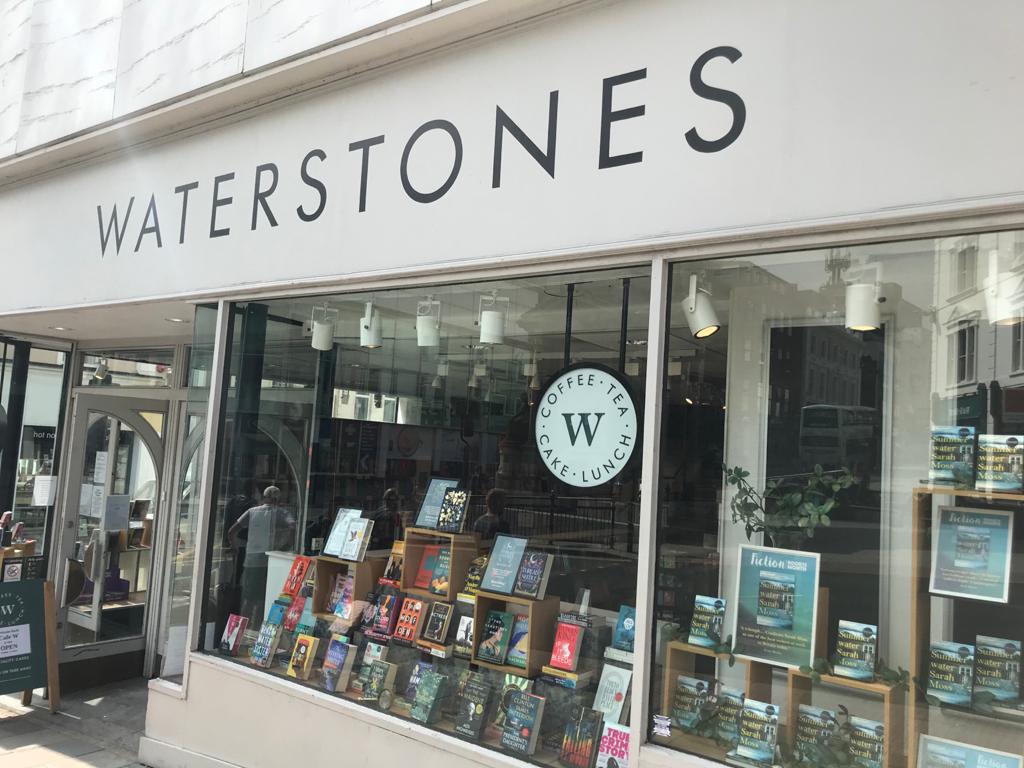
How the Waterstones localisation strategy is winning over customers
Since the pandemic started, there has been a massive re-evaluation on every level. As the country stands on the edge of Freedom Day on 19 July, what are the lessons retailers are taking forward?
In the UK, the impact on the way we live and where we work has created a once in a generation shift away from big city hubs to shine the spotlight on local communities and the role they play in everyone’s lives.
The importance of positive interactions with customers at every touch point has become crucial to the survival of businesses. Now more than ever, every customer interaction counts.
Bookseller Waterstones put localisation at the heart of their business strategy long before the pandemic. Since CEO James Daunt took over in 2011, Waterstones has empowered local stores to feel like an independent.

In Retail Week’s ‘Customer Champions’ report Waterstones’ Retail Director Luke Taylor says, “Booksellers are speaking to customers on a day-to-day basis; they know what they want and what’s selling. We get our shops running themselves and, to all intents and purposes, it’s the store manager’s name above the door. They see themselves as independents, but under a chain banner.”
Here we take a look at their localisation approach, and why now more than ever – with shopping habits shifting to more people buying locally – other businesses need to consider how they can do something similar.
Competition to provide exceptional customer experience
Waterstones is a great example of a company focused on creating a brilliant experience at local level. From changing operational models to support that, and empowering staff to make decisions at store level, Watestones is winning at giving exceptional customer service through interactions with frontline staff.
Luke Taylor says, “People will return to bookshops because of the experience. You can’t replace what a bookseller can do with an algorithm on Amazon. It’s [about] good old-fashioned knowing your customers and knowing your books. You can’t beat the local, face-to-face element.’
Watestones has long had a policy to employ people who really understand books, are passionate about them. Even in the mid 90s, their policy was to focus on employing English literature students or graduates, people who could demonstrate their passion and knowledge of books.
Staff are encouraged to speak to customers and ask them what they like to read, to make suggestions. Their staff reviews positioned along the bookshelves have long influenced people’s reading choices. The key here is trust – customers know the staff know their stuff, they understand books, understand what people want to know about a book before they buy it.

Employees are your best asset
Businesses are waking up to the fact their employees are their best asset and a route to providing a relevant, knowledgeable interaction with customers, every time.
It is frontline staff who are in the spotlight. In the past 18 months, retail frontline workers took on the responsibility to support consumers to navigate the changing situation. From ensuring shelves were stacked, deliveries made, and making shopping in store feel safe, we’ve seen a re-evaluation of just how important the role of employees is in the survival of a business.
Everyone has had a part to play in keeping the company they work for going, and keeping the country moving.
Culture, training, incentives and how you empower your staff makes the difference.
As with Waterstones, making sure local teams are able to deliver through tools and capabilities is key. In Customer Champions report, an emerging retail trend is the “Democratisation of decision-making, whereby power is redistributed from the boardroom to the shopfloor”.
At Waterstones, the result has been increased motivation with staff empowered to decide what to stock, what discounts to offer and what events to host.
For Waterstones, that meant restructuring, removing middle managers and giving the power to store managers, the booksellers. As Taylor says, “That’s key to us giving the independent spirit back to booksellers. They know what customers want and what’s selling, so it’s up to them to determine the ranges and make sure they reflect their local markets.”
Technology is becoming increasingly important
As well as shopping locally, the other major trend to surface from over a year of lockdown is online shopping. How do you take local level knowledge and share it digitally?
The solution a number of retailers, big and small, turned to in lockdown was to empower their employees to share content directly to their own followers and friends on social media. In April and May last year, there was a massive spike in employees taking to social media to talk about the work they were doing to support their colleagues, their communities, their employers.
Some were already part of a formal employee advocacy/influencer programme. Others wanted to join the conversation, lend their voice to the movement – to share how they were stepping up and taking on new responsibilities to support people in crisis.
The result was astonishing. People started talking about the brands they love. Sharing the stories of the work colleagues helping each other, of the impact they were having.
At its heart social media is about connecting people to people by building a genuine story. In the last year, we’ve seen more and more employees become part of this. Finding stories that resonate, that people want to talk about and share.
Retailers are tapping into local knowledge, acknowledging employees play a key role in the success of the business. Switching them onto social media, engaging with customers, sharing products, services, reviews, all with a local flavour.
This is the new marketing normal. Local, timely, human and employee driven.